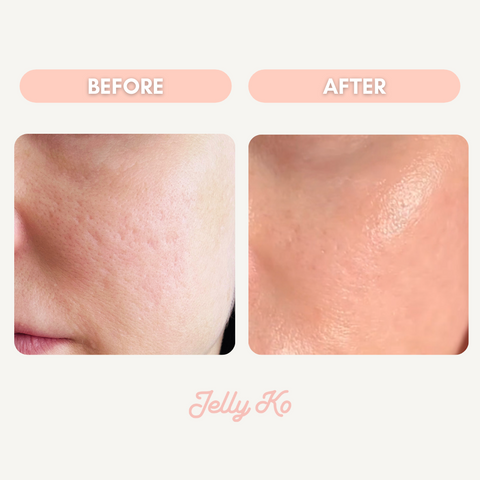What To Do When You've Overdone It On Exfoliation
If you’ve overdone your exfoliation, you're not alone. With more exfoliating products than ever cropping up on store shelves and confusing, sometimes incorrect information printed on the products about how and how often to use them you'd be forgiven for getting it wrong.
Here are our top tips for soothing skin that's been over-exfoliated, plus how to avoid it in the first place.
How To Tell If You’ve Over-Exfoliated Your Skin?
If you've overdone your exfoliation, there will be a few tell-tale signs, including:
- Sudden excessive dryness;
- Irritation;
- Redness;
- Stinging, burning or other sensitivities.
If you're noticing any of these alone or in combination with each other then chances are you've done too much.
Why Does it Happens?
Over-exfoliation happens because the skin's outer layer - it's stratum corneum - has been damaged. The outer layer is made up of dead skin cells and natural lipids. When they're not damaged, they work to prevent irritation, infection and keep the barrier hydrated. However, when the barrier is compromised, it is unable to perform its normal function. Once your skin’s barrier is exposed, you are vulnerable to hypersensitivity and bacteria. Over-exfoliation can even result in skin conditions like acne and a flare-up of rosacea.
How Can I Prevent Over-Exfoliation?
Over-exfoliation occurs by:
- Exfoliating too frequently;
- Exfoliating incorrectly (scrubbing too aggressively);
- Misusing exfoliators (layering them or combining them with incompatible products);
- Choosing the wrong products for your skin.
Especially with Western skincare products, the focus is often on scrubbing, buffing and peeling away old skin to reveal the fresh "new" skin underneath. Because of the claims made on the products, many people mistake cleanliness for scrubbing and end up damaging their skin’s barrier in the process.

How to Care For Over-Exfoliated Skin
If you’ve overdone it, the good news is that the resulting damage isn't permanent. There are products and techniques you can use to help diminish the symptoms, including:
- As soon as you can, apply a cool compress to the skin.
- Once it has calmed down, get to work with hydrating products to nourish, soothe and protect your skin. Try adding in a hydrating style toner, a barrier-soothing serum and an overnight facial repair mask while your skin recovers.
- Make sure you apply SPF religiously and avoid sun exposure.
- Don't introduce too many new products to your skin while it is in this vulnerable state.

Here's what NOT to do while your skin recovers:
- Apply any unnecessary products from your skincare routine;
- Apply acids, Vitamin C serums, scrubs and any actives.


Leave a comment
Please note, comments need to be approved before they are published.